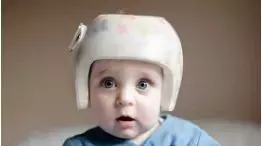- Home
- Medical news & Guidelines
- Anesthesiology
- Cardiology and CTVS
- Critical Care
- Dentistry
- Dermatology
- Diabetes and Endocrinology
- ENT
- Gastroenterology
- Medicine
- Nephrology
- Neurology
- Obstretics-Gynaecology
- Oncology
- Ophthalmology
- Orthopaedics
- Pediatrics-Neonatology
- Psychiatry
- Pulmonology
- Radiology
- Surgery
- Urology
- Laboratory Medicine
- Diet
- Nursing
- Paramedical
- Physiotherapy
- Health news
- Fact Check
- Bone Health Fact Check
- Brain Health Fact Check
- Cancer Related Fact Check
- Child Care Fact Check
- Dental and oral health fact check
- Diabetes and metabolic health fact check
- Diet and Nutrition Fact Check
- Eye and ENT Care Fact Check
- Fitness fact check
- Gut health fact check
- Heart health fact check
- Kidney health fact check
- Medical education fact check
- Men's health fact check
- Respiratory fact check
- Skin and hair care fact check
- Vaccine and Immunization fact check
- Women's health fact check
- AYUSH
- State News
- Andaman and Nicobar Islands
- Andhra Pradesh
- Arunachal Pradesh
- Assam
- Bihar
- Chandigarh
- Chattisgarh
- Dadra and Nagar Haveli
- Daman and Diu
- Delhi
- Goa
- Gujarat
- Haryana
- Himachal Pradesh
- Jammu & Kashmir
- Jharkhand
- Karnataka
- Kerala
- Ladakh
- Lakshadweep
- Madhya Pradesh
- Maharashtra
- Manipur
- Meghalaya
- Mizoram
- Nagaland
- Odisha
- Puducherry
- Punjab
- Rajasthan
- Sikkim
- Tamil Nadu
- Telangana
- Tripura
- Uttar Pradesh
- Uttrakhand
- West Bengal
- Medical Education
- Industry
3-D Evaluation Of Dental Arches in syndromic craniosynostosis for better prognosis: IJD

A study has been published in the International Journal Of Dentistry establishing the main characteristic features of dental arches in individuals suffering from a condition known as craniosynostosis, which is characterized by the early closure of the craniomaxillary sutures. It may or may not be associated with the syndromes, i.e., Crouzon Syndrome & Apert Syndrome. Previous studies revealed that these syndromes are included in the autosomal dominant congenital anomalies occurring due to mutations in the genes, i.e., FRFR2/TWIST, present in the fibroblast growth factor receptor.
The presence of either or both the syndromes and craniosynostosis is noted to be syndromic craniosynostosis- with symptoms including midfacial retrusion, exorbitism, orbital anomalies, respiratory issues, anomalies associated with the shape of cranial bone & its extremities.
The current research compares the interdental dimensions between individuals with Apert (AS) & Crouzon Syndromes (CS) and non-syndromic individuals. It was carried out to find out the preventive & curative measures (Rehabilitative treatment) of craniofacial anomalies that included patients of both genders aged between 5-26 years. The study included two groups-the first group involved 34 patients with the respective syndromes ( AS - 18 & CS - 16) & the second group included non-syndromic individuals. Measurements of perimeter, length, intercanine & intermolar distances of the upper & lower arches, overjet, overbite, and molar relationship were recorded
The research revealed some novel facts:
Patients with syndromic craniosynostosis revealed highly compromised dental arches (both upper & lower).
The study confirmed the alteration in morphology of sphenoid bone & maxilla being the cause for retrusion of the face (middle) in both the syndromes.
Low postural tongue, mouth breathing, and class III dental malocclusion were the significant problems reported due to alteration in the morphology of maxillary growth.
Highly decreased perimeter value & length of upper & lower arch in patients with Apert Syndrome have been noted. The presence of overjet with anterior crossbite has been observed. Decreased value of perimeter & length of the upper arch in patients with Crouzon Syndrome, with no change in the size of the lower angle, has been observed.
On further comparative analysis between Apert Syndrome v/s Crouzon Syndrome, results revealed-Decreased perimeter value of the upper arch in patients with AS than CS and the presence of crossbite in AS & overjet and edge-to-edge bite in CS patients.
Based on the facial deformities, suggested rehabilitative treatment includes :
1. Intracranial decompression surgery & tracheostomy - after birth if compulsory
2. Frontofacial advancement & syndactyly correction - 6-12 months of age.
3. Palatoplasty - 1-2 years of age.
4. Monitoring of the development of dentition - 2-7 years of age.
5. Frontofacial advancement and orthodontic correction - 7-9 years of age.
The current study has established a clear picture of the maxillofacial dimensions associated with syndromic craniosynostosis and suggested a better understanding of changes occurring between the maxillary & mandibular dentition. This will help to find out the preventive steps at an early age that can be useful in handling these cases with a better prognosis.
For the full article, visit the given link below:
https://www.hindawi.com/journals/ijd/2023/1043369/
Source: International Journal Of Dentistry
Dr Satabdi Saha (BDS, MDS) is a practicing pediatric dentist with a keen interest in new medical researches and updates. She has completed her BDS from North Bengal Dental College ,Darjeeling. Then she went on to secure an ALL INDIA NEET PG rank and completed her MDS from the first dental college in the country – Dr R. Ahmed Dental College and Hospital. She is currently attached to The Marwari Relief Society Hospital as a consultant along with private practice of 2 years. She has published scientific papers in national and international journals. Her strong passion of sharing knowledge with the medical fraternity has motivated her to be a part of Medical Dialogues.
Dr Kamal Kant Kohli-MBBS, DTCD- a chest specialist with more than 30 years of practice and a flair for writing clinical articles, Dr Kamal Kant Kohli joined Medical Dialogues as a Chief Editor of Medical News. Besides writing articles, as an editor, he proofreads and verifies all the medical content published on Medical Dialogues including those coming from journals, studies,medical conferences,guidelines etc. Email: drkohli@medicaldialogues.in. Contact no. 011-43720751


